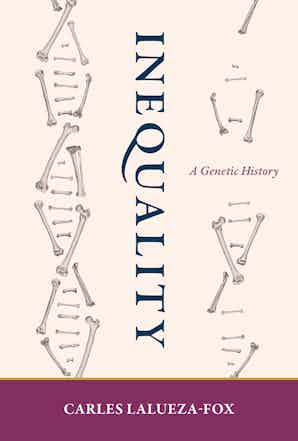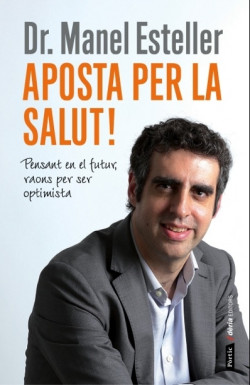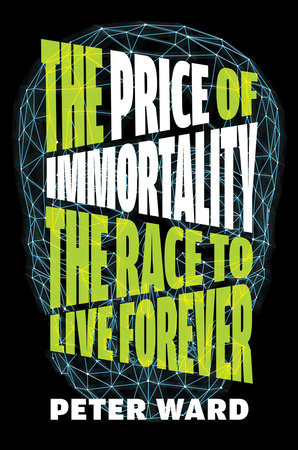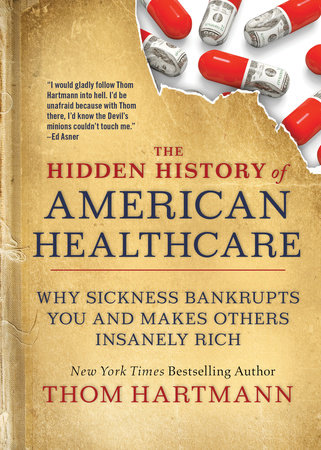Hidden Games. The Surprising Power of Game Theory to Explain Irrational Human Behavior
26 de juny 2022
18 de juny 2022
Human differences
The book explores the ancestral shifts associated with migration and describes the gender bias unearthed in these migrations—the brutal sexual asymmetries, for example, between male European explorers and the women of Latin America that are revealed by DNA analysis. He considers social structures, and the evidence that high social standing was inherited—the ancient world was not a meritocracy. He untangles social and genetic factors to consider whether wealth is an advantage in reproduction, showing why we are more likely to be descended from a king than a peasant. And explores the effects of ancient inequality on the human gene pool. Marshaling a range of evidence, Lalueza-Fox shows that understanding past inequalities is key to understanding present differences.
17 de juny 2022
16 de juny 2022
Unfair War
Who Should Die?. The Ethics of Killing in War
This volume collects in one place the most influential and groundbreaking philosophical work being done on the question of killing in war, offering a "who's who" of contemporary scholars debating the foundational ethical questions surrounding liability to harm. In ten essays, it expands upon and provides new and updated analyses that have yet to be captured in a single work. Essays explore questions such as: Are some soldiers more deserving of death than others? Should states allow soldiers to conscientiously object (to opt out of war) on a case-by-case basis? Can a theory of rights best explain when it is permissible to kill in war? When are we allowed to violently resist oppression that is itself nonviolent? Is there anything wrong with targeting people with autonomous weapons?
Who Should Die? Editors' Introduction
Chapter 1: "Liability to Deadly Force in War"
Leonard Kahn
Chapter 2: "Jus in Bello: Actual vs. Hypothetical Contract"
Yitzhak Benbaji
Chapter 3: "Do Some Soldiers Deserve to Die More Than Others? Selective
David Whetham
Chapter 4: "Defensive Liability: Four Common Mistakes"
Kai Draper
Chapter 5: "Fighting for One's Self"
Michael Robillard
Chapter 6: "An Axiomatic Theory of Just War: Forfeiture Theory"
Stephen Kershnar
Chapter 7: "Dignity, Self-Respect, and Bloodless Invasions"
Saba Bazargan
Chapter 8: "What is the Moral Problem with Killer Robots?"
Susanne Burri
Chapter 9: "Distributing the Cost of Rescue"
Lars Christie
Chapter 10: "Legality, Justice, and the War on Terrorism"
Lionel K. McPherson
15 de juny 2022
A new theory of patient rights?
Pharmaceutical Freedom. Why Patients Have a Right to Self Medicate
Patients rights or wrongs?. A controversial book.
14 de juny 2022
13 de juny 2022
Sharing health risks
Mutualism and health care. Hospital contributory schemes in twentieth-century Britain
The British hospital contributory schemes movement was described in 1936 as ‘one of the most outstanding examples of social organisation during the last two or three decades’.1 Contributory schemes had flourished in response to the considerable financial challenges faced by the voluntary hospitals in the twentieth century, although their roots lay in the nineteenth-century Hospital Saturday and Sunday funds (described in chapter 2).2 The aim was to elicit the support of working-class subscribers (people whose incomes were insufficient for them to be able to pay for treatment by a private medical practitioner) in the form of regular contributions to hospital finances. A small weekly contribution was levied, typically 2d or 3d, or a penny in the pound of wages, mostly through payroll deductions. The funds raised were either handed over directly to individual hospitals or pooled for distribution between groups of hospitals. The principal benefit of membership was free treatment in a voluntary hospital, without having to pass the means test set by the hospital almoner
12 de juny 2022
09 de juny 2022
Longevity medicine scams
The Price of Immortality. THE RACE TO LIVE FOREVER
Peter Ward immerses himself into an eccentric world of startups, scam artists, scientific institutions, and tech billionaires to deliver this deeply reported, nuanced, and sometimes very funny exploration of the race for immortality — and the potentially devastating consequences should humanity realize its ultimate dream.
08 de juny 2022
Valuing health
Measuring and Valuing Health Benefits for Economic Evaluation
This book addresses the theoretical and practical considerations in the measurement and valuation of health benefit with empirical examples and applications to help clarify understanding and make relevant links to the real world. It includes a glossary of key terms and provides guidance on the use of different methods and instruments. This updated edition provides an-up-to date review of the theoretical basis of the QALY; the definition of health; the techniques of valuation (including ordinal); the modelling of health state values (including mapping between measures); a detailed review of generic preference-based measures and other instruments for obtaining health state utility values (with recent developments); cross-cultural issues (including the disability-adjusted life year); the aggregation of QALYs; and the practical issues surrounding the use of utility values in cost-effectiveness models. The book concludes with a discussion on the way forward in light of the substantial methodological differences, the role of normative judgements, and where further research is most likely to take forward this fascinating component of health economics.








